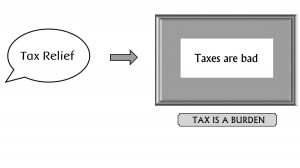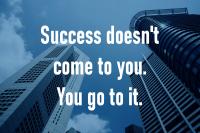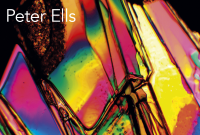
Ever wanted to look behind the scenes at a theatre, a rock concert, or an airport? Of course you have: backstage is a hidden world where exciting things go on, a secret world most of us rarely get to see.
There’s a hidden world behind everyday life too. “Framing” operates behind the scenes, affecting how we view things, large and small. In this book we’ll show you how to spot when frames are influencing your thinking.
Framespotting can unlock new, more realistic, more effective and saner ideas than those we’re generally presented with. It can be liberating, too; and you’ll see that there’s an inspirational story
going on all around us, and that you’re part of it.
Intrigued? Come and see backstage...
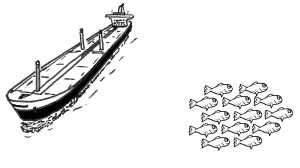
Look At It This Way
How do we get backstage?
Well, the doors are hidden in plain sight. We have to learn to see them.
How do we see things? Take society, for example. When we think about changing society’s attitude to something, we tend to think of something huge and difficult to turn, like a supertanker.
But we’re not bits of metal welded together; we’re individuals, making decisions independently, but linked together by constant, rapid communication. Perhaps, instead of a supertanker, we’re like
fish, or a flock of birds: able to change direction in an instant if we need to.
How we see things is important.
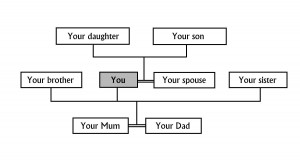
What’s Up?
What’s wrong with this family tree? Well, nothing. It’s not usual to put ancestors at the bottom and children at the top, but there’s no law against it. Real trees grow upwards, so why not family trees?
It’s a choice, like putting north at the top of a map (in medieval Europe, maps often had south or east at the top, rather than north).
So what? Well, these choices can influence our thinking without us being aware of it. For example, we draw organization trees for corporations with the management at the top. This means that managers are to be “looked up to” and so naturally deserve more money. They find this congenial, and commandeer the top floor of office buildings for the same reason.
Subconsciously, we think of “up” being better than “down”.
Is it just possible that this subtly changes how we see the upper and lower classes, or the global North and South?
Watch Your Language
The way we see things is influenced by the words we use.
The phrase “tax relief” is like this. It encourages us to think of tax as a burden, or affliction: something we need relief from (as opposed to, say, thinking of tax as the membership subscription to a society which provides police, roads and schools).
We seldom think about things in isolation; usually we try and fit them into our view of the world. We try to think about something abstract, like a tax, by thinking about something more tangible or familiar. Like a burden, perhaps.
But looking at things through that “frame” can nudge us into certain attitudes without our realizing it. Burdens are bad, and should be reduced whenever possible. So taxes should be reduced too.
Now maybe taxes should be higher; maybe they should be lower. You decide. But if you’re being manipulated into thinking one way rather than the other, this amounts to thought-control.
You’ve been framed.
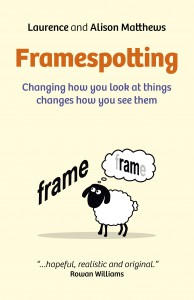
Framespotting - Changing how you look at things changes how you see them
by Laurence & Alison Matthews
Look at it this way... Everywhere we look, “framing” affects how we see things. Frames restrict our view, keeping us from seeing the whole truth, and subtly influencing our take on everything from deck-chairs to democracy. This upbeat, punchy guide to framespotting will open your eyes and your mind. Learn to notice frames and it’s amazing what else you’ll see: fresh ideas; how and why you’re being hoodwinked; and how you’re part of the transition from growth to growing up. Framespotting is empowering and liberating. And you’ll never look at sprinklers or economists the same way again.
- Paperback £8.99 || $14.95
- Oct 31, 2014. 978-1-78279-689-3.
- BUY | AMAZON US | AMAZON UK
- eBook £4.99 || $7.99
- Oct 31, 2014. 978-1-78279-822-4.
- BUY | AMAZON US | AMAZON UK
Categories:
0 comments on this article

